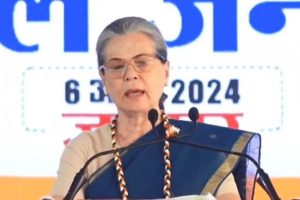The Union Ministry of Ayush and the World Health Organization (WHO) signed a donor agreement at the WHO headquarters in Geneva on Wednesday, an official statement said here on Thursday.
This agreement outlines the financial terms for implementing the activities of the WHO Global Traditional Medicine Centre (GTMC) in Gujarat’s Jamnagar, as per the communique’ issued by the Ayush Ministry.
Advertisement
“Through this collaboration, the government of India will donate US$ 85 million over a period of 10 years (2022-2032) to support the operations of the WHO Global Traditional Medicine Centre (GTMC) in Jamnagar, Gujarat, India. The donor agreement recognizes the establishment of the WHO Global Traditional Medicine Centre as a key knowledge hub for evidence-based Traditional Complementary and Integrative Medicine (TCIM) aiming to advance the health and well-being of people and the planet,” it said.
Notably, with the approval of Union Cabinet, a host country agreement was signed on 25th March, 2022 between Ministry of Ayush and WHO, marking the establishment of WHO Global Traditional Medicine Centre in Jamnagar as the first and only global out-posted Centre (office) for traditional medicine across the globe, the statement said.
The interim office of the WHO-GTMC is already operational, working on developing capacity-building and training programs relevant to its objectives. These programs will include campus-based, residential or web-based training, in partnership with the WHO Academy and other strategic partners, it said.
The Ayush Ministry said it has collaborated with WHO on various fronts, including the development of benchmark documents for training and practice in Ayurveda, Unani and Siddha systems, the creation of WHO terminology for these practices, the introduction of a second module in the Traditional Medicine Chapter of the International Classification of Diseases-11, the development of apps like M-Yoga and support for the International Pharmacopoeia of Herbal Medicine (IPHM).
These collaborative efforts, including those involving the WHO GTMC, will help India in positioning traditional medicine on the global stage, it said.
The joint efforts of Ayush Ministry and WHO will not only benefit India but also contribute to the global health agenda, reinforcing India’s commitment to achieving the Sustainable Development Goals through Traditional Medicine, it added.











